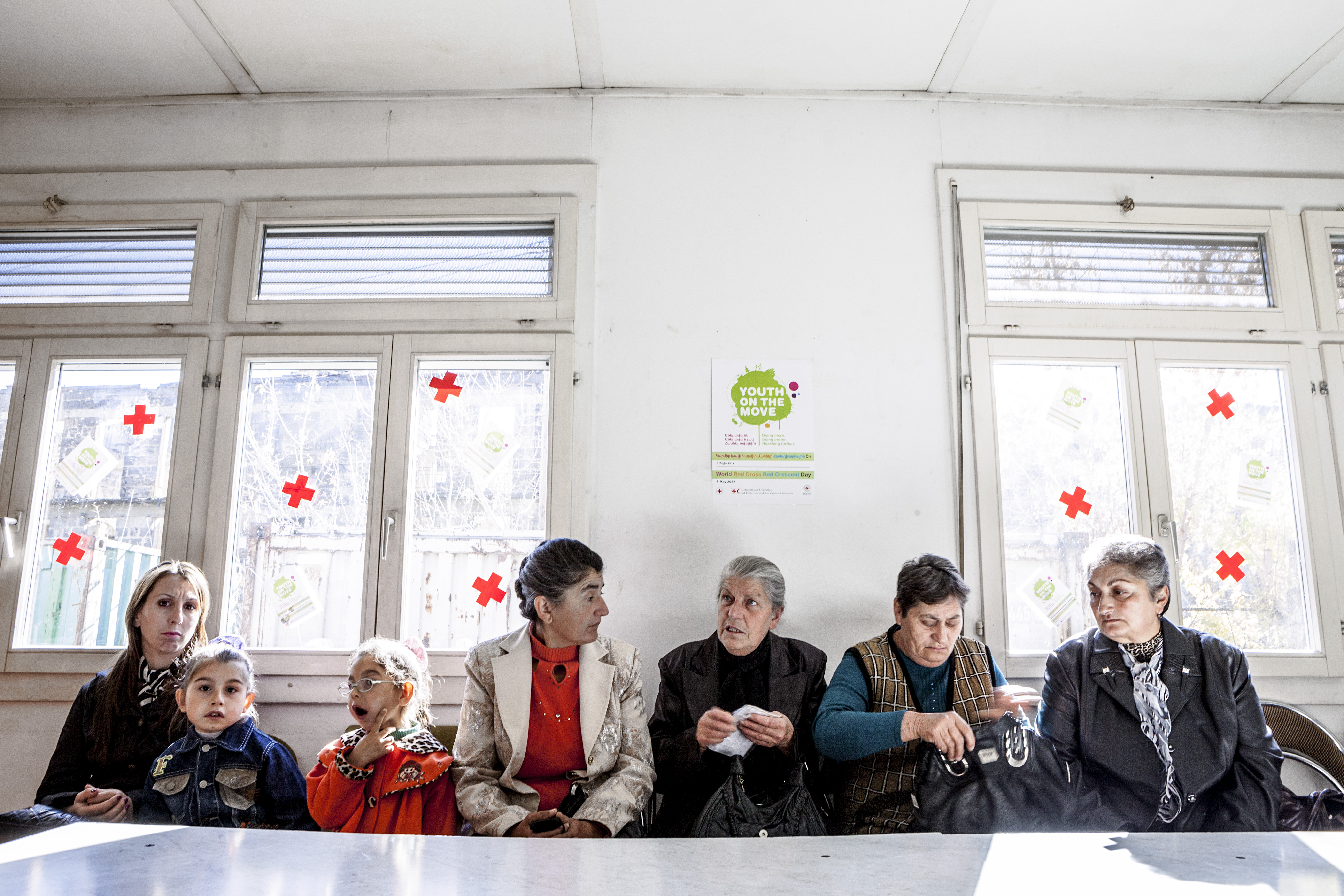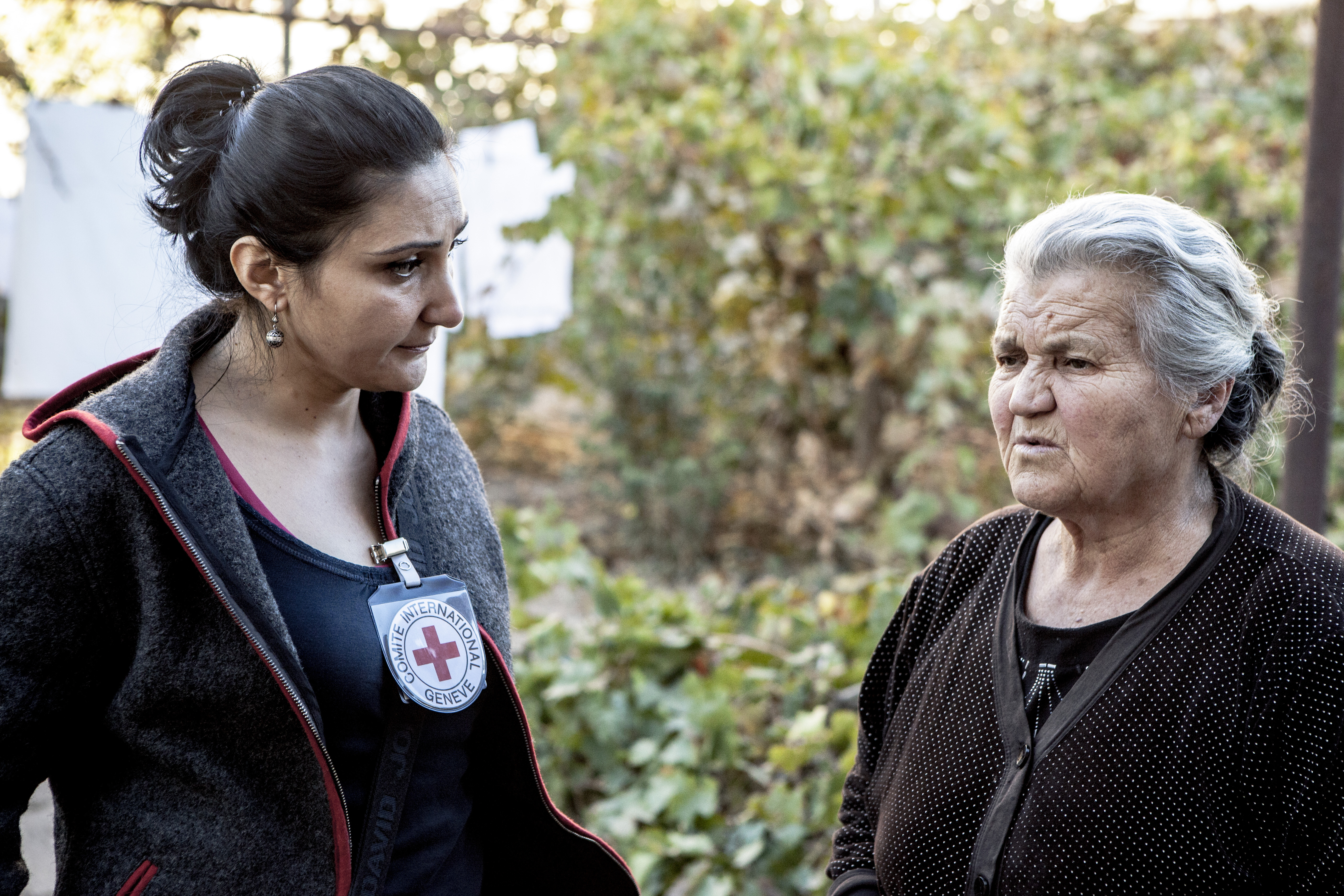Angelica Mendoza, known by all as “Mama Angelica,” is still strong despite her 86 years. She has spent the last three decades searching tirelessly for her son, Arquimedes Ascarza Mendoza, who disappeared on July 3, 1983. Though the memory pains her, she can clearly recall the way her son was taken from his home in the early hours of the morning all those years ago. He is one of an estimated 15,000 people in Peru who were disappeared during the country’s civil war between 1980 and 2000.

Every year thousands of people go missing around the world as a result of conflict or other forms of violence. It is often women who are left behind, never knowing if their father, husband, son or brother is alive or dead. These women live in constant fear and sadness and can dedicate their lives to trying to find answers.
The International Committee of the Red Cross (ICRC) has a dedicated program to support relatives of the missing, which includes psychological support, group counseling and help searching for information. They also work with governments to fulfill their obligations under international human rights law to investigate those who disappear in conflict.
“I have not stopped searching for [my son] since he was taken. I’ve been to every place he could possibly be,” says Mama Angelica, pictured above. “How can we forget our sons, our husbands, our fathers? It’s impossible.”
Families of the missing gather in Yerevan, Armenia, above, to share stories and support each other. The ICRC encourages relatives to leave the house and meet other people struggling with the same feelings of fear and loss to help deal with the trauma of having a missing family member.

This woman in Abkhazia, Georgia, pictured above, is searching for her husband who went missing 20 years ago, during the 1992–93 Georgian-Abkhaz war. Here, she is holding up photographs from their wedding.

In Armavir, Armenia, an ICRC psychologist talks to a woman, above, whose son went missing in Nagorno-Karabakh during the war in the early 1990s. Relatives of the missing sometimes put their lives on hold for decades as they wait for information. The ICRC provides psychological support to help relatives move on with their lives while waiting for answers.
Parents remember their missing children at a memorial in southern Lebanon, above. The ICRC helps families of the missing celebrate and remember loved ones, even if they may never know what happened to them.
At a medical college in Sukhumi, Georgia, a local nurse, pictured above, takes a biological sample from the relative of a man who went missing during the Georgian-Abkhaz war. The ICRC offers countries guidance on collecting DNA samples and carrying out forensics during the search for those who have gone missing in conflict.

With the help of the prosecutor’s office staff, families in Ayacucho, Peru, try to identify the clothes of their missing relative, above.

In Ayacucho, Peru, volunteers and family members who were able to recover their relatives’ remains carry their coffins through the streets, above.
This woman in Jaffna, Sri Lanka, pictured above, is one of the nine members of the network of handicraft weavers in the Iyakkachchi community. The ICRC provides economic support to relatives of the missing, who often lose a breadwinner, helping them regain control and independence over their lives.
